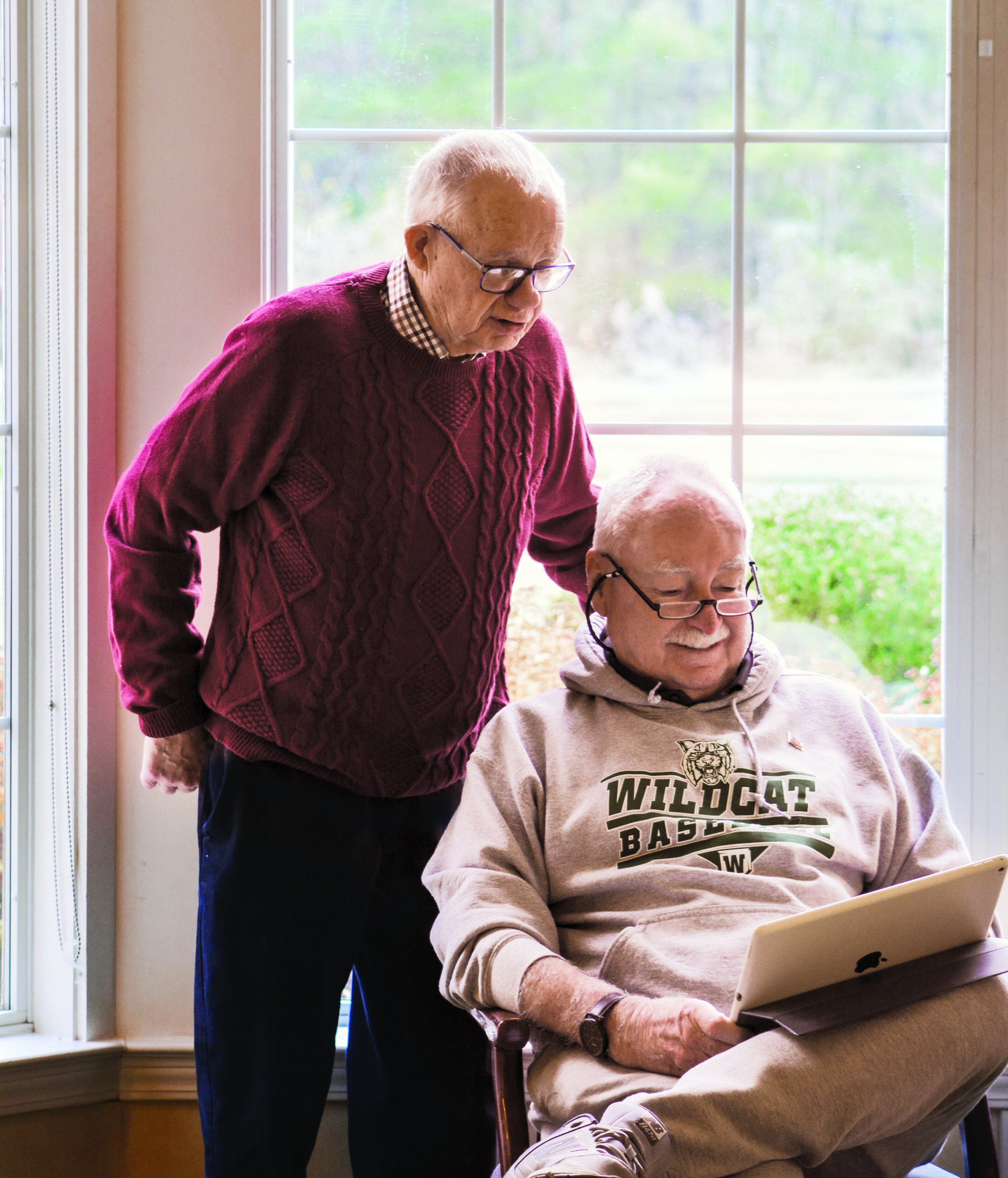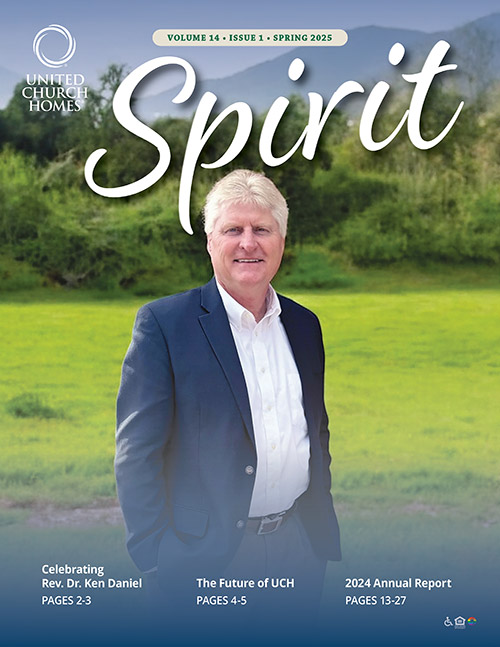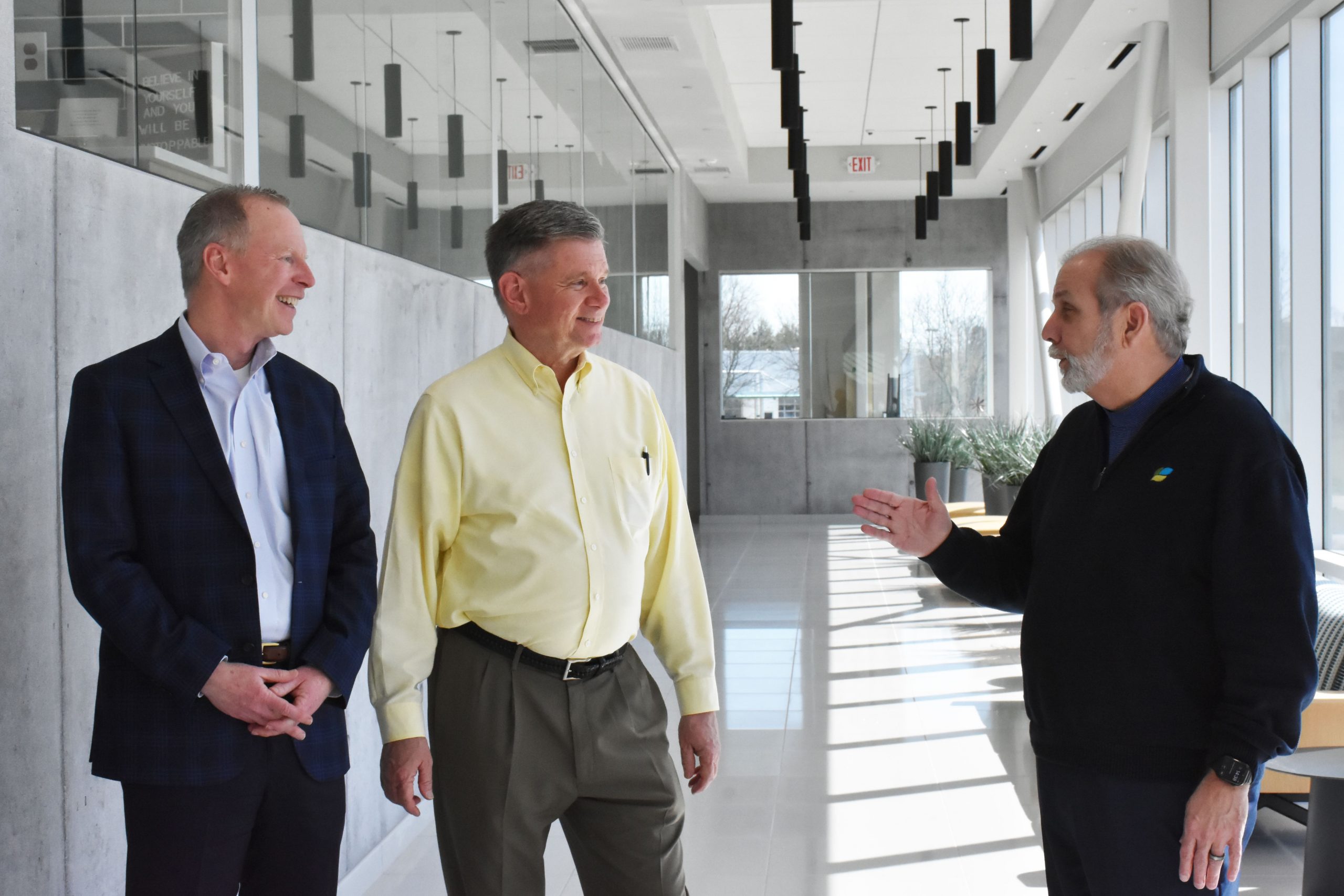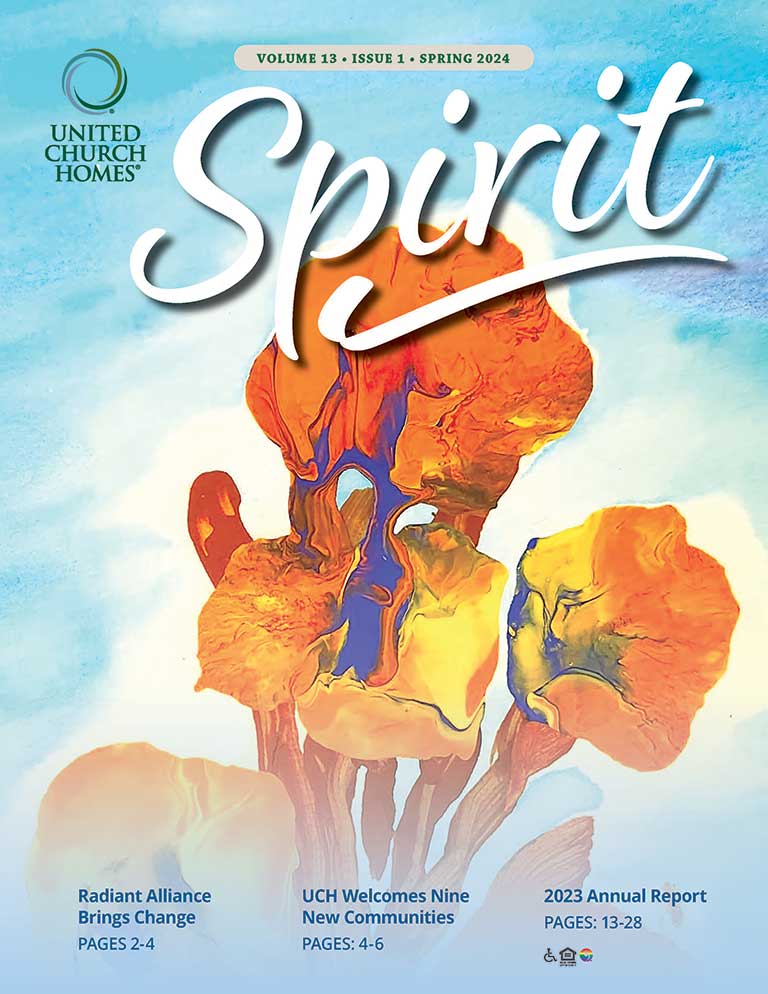
A resident couple at The Glenwood Community in Marietta, Ohio, huddles over their tablet with faces of joy.
One might think that United Church Homes’ (UCH) focus on technology is only in response to the COVID-19 pandemic – a period in which people and organizations increasingly relied on technology to stay connected with friends, family and work. However, senior leadership and staff are always exploring ways to better serve residents throughout UCH’s nearly 80 Life Plan, healthcare and affordable housing middle market communities and have long recognized the many opportunities to do so through technology.
[su_pullquote]“Each UCH community is unique and so too are residents’ needs and preferences,” explained Amy Kotterman, UCH’s director of customer experience.[/su_pullquote]Some technology initiatives enhance the quality of medical care provided to residents, while others contribute to residents’ abundant living. Some do both and all align with UCH’s commitment to helping people achieve purposeful living in mind, body and spirit.

A group of friends at Pickfair Square in Pickerington, Ohio, gather around ElliQ to discuss their love for the technology.
ElliQ
A new UCH artificial intelligence technology initiative being piloted at various independent living communities is ElliQ, described by its developer as a friendly, intelligent, inquisitive presence in seniors’ daily lives. ElliQ is a device similar to Amazon’s Alexa but different in two distinct ways: it is empathetic and proactive. More than one-third of the devices being used in the U.S. are in the hands of UCH residents, engaging them in conversation, facilitating health check-ins, encouraging physical activity, streaming various genres of music, sending messages, reporting news, sports and weather and engaging residents in cognitive games.
“Over time, ElliQ learns residents’ personal interests and preferences,” explained Dan Fagan, UCH’s executive director of housing and services, who reached out to the developer after reading an article in The New Yorker magazine.
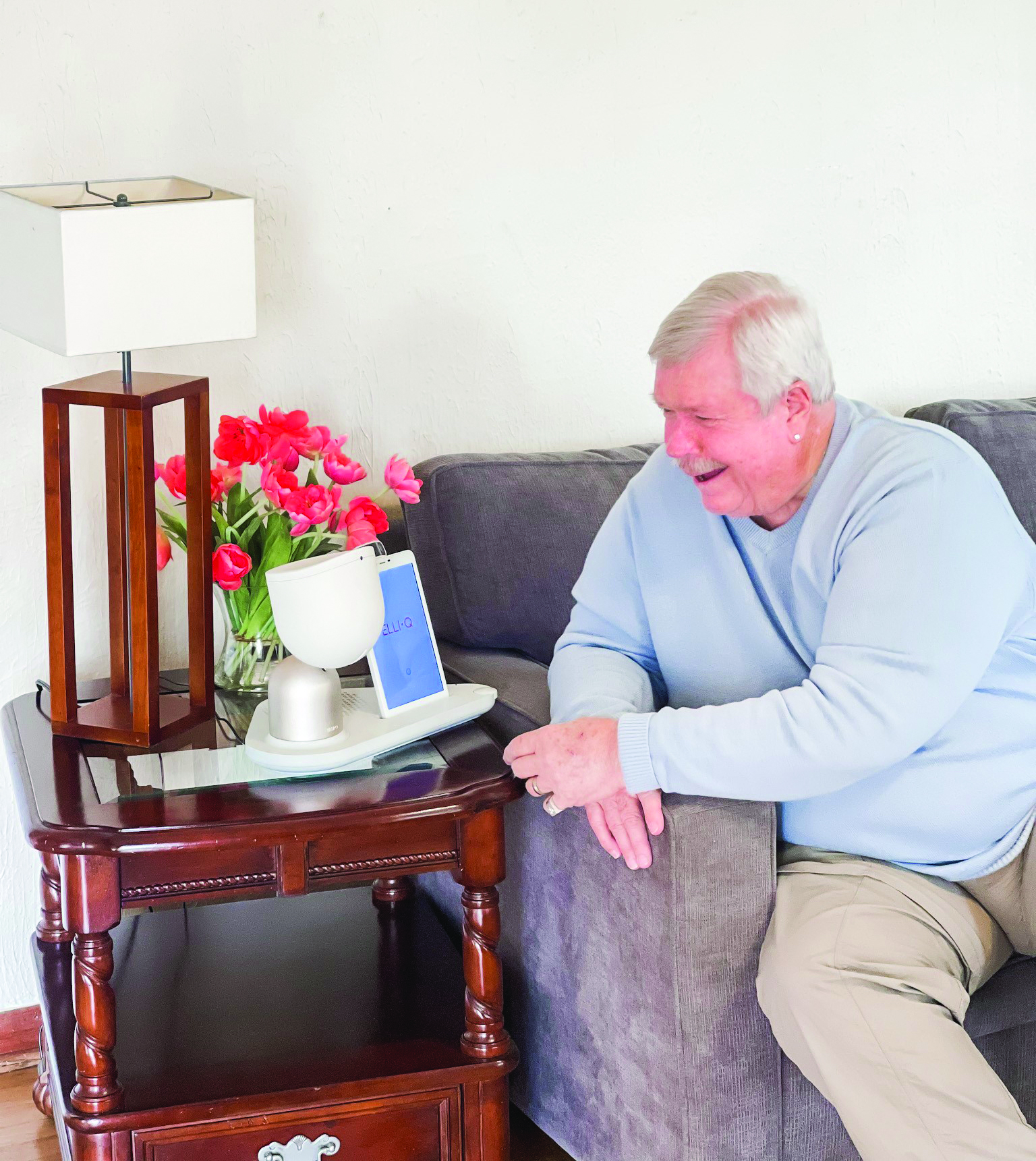
ElliQ interacts with residents through a robotic persona, which moves and turns, engaging the resident.
ElliQ is highly complex artificial intelligence technology. It doesn’t pretend to be a real person and isn’t intended for use with memory care patients. ElliQ has no face or eyes, its voice sounds like that of a robot and it includes a tablet for display of information. It encourages residents to stay hydrated, to take medications, engage in physical activity and has an internal calendar to remind users of appointments and upcoming events.
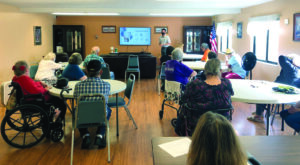
Residents learning about ElliQ at Hardincrest in Kenton, Ohio.
Robotic stuffed animals
Thanks to generous donors, life-like robotic cats and dogs are used at many of our communities to address residents’ need for companionship. These warm and fuzzy electronic pets provide comfort and joy to seniors living with the challenges of dementia and loneliness. Some seniors see them as real pets, while others recognize them as an amazing piece of technology. In both cases, they are an example of UCH’s commitment to helping improve residents’ overall quality of life.
RemoteMD
Another interesting and beneficial technology initiative is RemoteMD – an international healthcare service developed to treat patients physically isolated on freighter ships and oil rigs. It’s currently used in UCH skilled nursing communities to provide telehealth services. It connects residents, their loved ones, UCH interdisciplinary team members, physicians and other healthcare providers. An online mini-emergency room telehealth visit allows residents to be assessed for heart, pulmonary and urinary conditions, and leads to well- informed decisions on how and where residents can receive the best care.
[su_pullquote]“An emergency room visit can be traumatizing and increase a person’s risk for potential exposure to infectious diseases,” explained Director of Clinical Services, Lorelei Heineman. “RemoteMD allows us to screen residents and determine whether they need hospital services. Family members can also be involved in the decisions.”[/su_pullquote]UCH participated in a trial of RemoteMD last summer for two months, using the technology to help identify the root cause of residents symptoms and the best treatment options. During that two-month period, UCH achieved an 80 percent reduction in the number of residents requiring transfer to a hospital emergency room.
In UCH’s affordable housing communities, establishing and maintaining a connection with residents is a high priority including ensuring they have the access and ability to use technologies. UCH service coordinators use the Resident Connect system to maintain contact and build relationships with residents through voice mail, text and email. Residents can participate in Zoom meetings facilitated by service coordinators and can borrow tablets for telehealth appointments and to connect with family and friends.
CaringWire
The Brunswick Community in Ohio is piloting CaringWire, a digital caregiver assistant. It teaches the community’s residents how to resolve common problems and access community resources. It asks questions to identify needs and offers suggestions on various ways to address them including daily care, home safety, safe driving, legal, financial and more.
It doesn’t replace support provided by the community’s service coordinator, but rather supplements it by providing residents with a tool to self-manage their most basic needs. Information may also be shared with others both within and outside the community. Accessible on a smart phone or computer, CaringWire helps seniors maintain their independence.
These are just a few ways UCH is exploring the use of technology to help older adults live well and lead abundant lives.
View all articles by:

